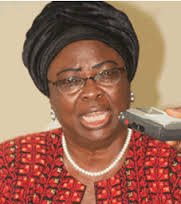Nigeria’s military claimed victory in its latest offensive against Boko Haram Sunday, saying it captured and destroyed 10 camps being used by the militant group in the Sambisa forest, considered the group’s last major stronghold. Maj.-Gen. Chris Olukolade, Nigeria’s director of defense information, announced the development in a statement Sunday in Abuja. He said several Boko Haram members were also killed in the operation although the toll has not yet been confirmed. The heaviest fighting occurred in the Dure camp, one of the group’s most prominent camps in the forest, Olukolade said.
The Sambisa forest in Nigeria’s northeast has become a key base for Boko Haram. Last month the Nigerian military rescued from the forest nearly 300 women and girls who had been abducted by Boko Haram, although the group didn’t include the 200 schoolgirls kidnapped from a school in the northeastern town of Chibok more than a year ago.
Nigeria’s army began a ground offensive in the Sambisa forest last month although the military had been conducting airstrikes on targets there since February. Boko Haram has been losing territory and resources since the military, along with soldiers from neighboring Chad, Cameroon, Benin and Niger, launched a joint force to battle the group in February.
The Sambisa forest is considered Boko Haram’s last key hideout although analysts told International Business Times last week the group may soon be turning toward more extreme attacks in the areas it still controls. This week Boko Haram fighters recaptured the town of Marte in Borno state, which had been liberated by the military in February.
The fight against Boko Haram will be one of the major challenges facing President-elect Muhammadu Buhari, a former dictator who was elected in March. He will assume the presidency May 29, taking the place of President Goodluck Jonathan, who has been heavily criticized for his government’s failure to stem Boko Haram’s violent campaign. Since the group’s insurgency began in 2009 it has claimed the lives of an estimated 15,000 people and displaced an additional 1.5 million Nigerians, according to the United Nations refugee agency.














